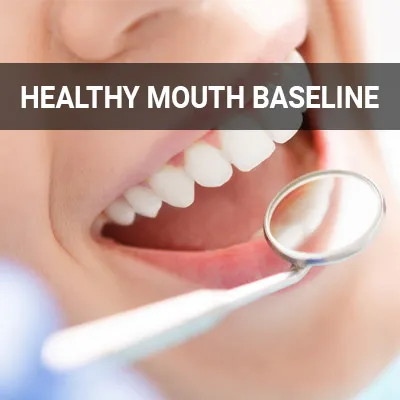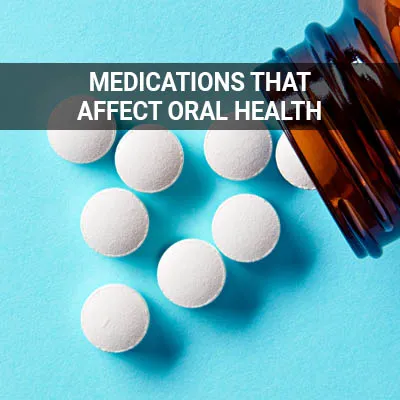Gut Health San Jose, CA
Many patients are surprised to learn that gut health is inextricably linked to oral health. Similarly, oral health and overall health are linked together. A total health dentist understands how to examine the oral microbiome for signs of health issues.
Gut health treatment is available at Dental Smiles of Willow Glen in San Jose and the surrounding area. Choosing a total health dentist as your primary dental care provider may improve your overall health. Call us today at (408) 827-9479 to schedule an appointment or to learn more about our services.
Understanding the Oral Microbiome
A microbiome is a congregation of the microbial residents in the body. It is made up of commensal, pathogenic, and symbiotic microorganisms. There are as many or almost as many microbes in the body than there are cells. The microorganisms found in the human oral cavity are known as the oral microbiome, sometimes called the oral microbiota or oral microflora. It is the second-largest microbial community in the body after the gut.
Research on oral microbiomes is still expanding. However, existing literature makes it evident that it can cause both oral and systemic conditions. Ideally, the oral microbiome rests within biofilms throughout the oral cavity, forming an ecosystem that maintains health in a state of equilibrium. If this equilibrium is disrupted, pathogens may manifest and cause disease. As such, patients should ensure that their primary dental provider understands the importance of the oral microbiome.
“The microorganisms found in the human oral cavity are known as the oral microbiome, sometimes called the oral microbiota or oral microflora.”
Bacteria and the Digestive System
The mouth is a natural breeding ground for bacteria, especially since it acts as an entryway to the digestive and respiratory tracts. Fortunately, most of such bacteria are harmless and can be kept at bay with the body's natural defenses and good oral hygiene. However, improper maintenance may allow bacteria to flourish, leading to oral infections. This oral bacteria can make its way to the gut, changing the microbiome and potentially influencing its immune defense.
This may lead to colon conditions such as Crohn's disease, gluten sensitivity, and colitis. Crohn's disease is an inflammatory bowel disease (IBD) that causes inflammation of the digestive tract. Symptoms may include abdominal pain, fatigue, malnutrition, severe diarrhea, and weight loss. People with gluten sensitivity, as the name suggests, have issues with digesting gluten. They may experience fatigue, leg numbness, muscle cramps, and stomachaches. Finally, colitis is a condition that causes the inflammation of the colon's inner lining. Primary symptoms depend on the exact cause of the condition but generally include abdominal pain, cramping, and diarrhea.
“…oral bacteria can make its way to the gut, changing its microbiome and potentially influencing its immune defense.”
The Microbiome and the Immune System
The microbiota plays an integral role in the inducting, training, and functioning of the patient's immune system. Accordingly, the immune system has evolved to maintain the patient's symbiotic relationship with the evolving microbes. Ideally, the immune system-microbiota alliance induces protective responses and supports regulatory pathways. Disrupting the microbiota will wear away at the resilience and diversity required for proper immune responses.
The gut microbiome is an endocrine organ in and of itself. The endocrine system synthesizes and secretes hormones to regulate physiological processes. As such, bacterial metabolites and components may affect organ function and physiological outcomes. These may also send signals to the immune and nervous systems. It is necessary to feed the gut army to encourage the diversity that can combat inflammation. Fiber is a good source of this, especially cruciferous vegetables.
“The microbiota plays an integral role in the inducting, training, and functioning of the patient’s immune system.”
Check out what others are saying about our dental services on Yelp: Gut Health in San Jose, CA
Gut Health and the Brain
Together, the gut and the brain comprise the enteric nervous system (ENS). This system is two thin layers of over 100 million nerve cells that line the gastrointestinal tract from the esophagus to the rectum. It is responsible for controlling digestion and is in constant communication with the brain. The ENS may trigger mood swings in people with irritable bowel syndrome (IBS) and functional bowel problems. It may even affect cognition and raise or reduce a patient's risk for certain health conditions.
The gut and brain are connected through various nerves and neurotransmitters. Gut microbes may also produce chemicals that affect the brain and affect inflammation. Those with functional gastrointestinal disorders are more perceptive to pain since their brains are more responsive to pain signals from the gastrointestinal tract, and stress can worsen these symptoms.
Questions Answered on This Page
Q. What is the oral microbiome, and why is it important?
Q. How do oral bacteria affect the digestive system?
Q. How does the microbiome affect the immune system?
People Also Ask
Q. What preexisting conditions are linked to oral health?
Q. Are oral conditions genetic or a result of environmental factors?
Q. What are some conditions that a complete health dentist can diagnose?
Q. Beyond regular checkups, what additional procedures might a dentist recommend?
Maintaining Gut Health
There are many things individuals can do to maintain their gut health at home. Lowering their stress levels is critical, as is getting enough sleep. They should eat slowly, stay hydrated, and take a pre- or probiotic. Some may also benefit from checking for food intolerances and changing their diet accordingly. However, nothing can replace the expertise of a complete health dentist.
Though most dentists are aware of the link between gut health and oral health, traditional dentists still tend to focus on treating isolated symptoms rather than the root cause of a patient's condition. This can be a costly mistake, as poor gut health may lead to periodontal disease and dental decay. A complete health dentist can identify signs of poor gut health and stop its adverse effects. Furthermore, complete health dentists are not limited to diagnosing and treating oral health conditions. They can often recognize the signs of other systemic diseases associated with poor oral health.
Poor gut health often starts when bacteria enter the mouth, cause oral infections, and spread to other parts of the body. Dental Smiles of Willow Glen is proud to help patients maintain their total health through personalized treatment tailor-made to fit each individual's unique needs. This involves regular cleanings, dental exams, wellness visits, and various other dental treatments a patient may need. Our offices can also, with patient permission, communicate with other healthcare providers to provide the most comprehensive care plan possible. Poor gut health may lead to several other health conditions. We can help patients maintain their oral hygiene to prevent any unnecessary complications.
Frequently Asked Questions
Q. What are the signs of an unhealthy gut?
A. Unfortunately, many aspects of contemporary life are detrimental to the gut microbiome. These involve high levels of stress, inadequate sleep, diets full of processed and high-sugar foods, and excessive use of antibiotics. These factors may lead to symptoms such as upset stomach, unintentional weight changes, sleep disturbances or constant fatigue, skin irritation, autoimmune conditions, and food intolerances.
Q. Is it enough to go to the dentist once a year?
A. Probably not. Though the amount of dental care a person needs varies from individual to individual, most American adults report poor dietary and sleeping habits. These can both impede healing and lead to further gut inflammation. Our team can devise a personalized treatment plan for your needs.
Q. What kind of foods should I eat for good gut health?
A. Mineral-rich foods, healthy fats, non-starchy veggies, and vitamin-K rich foods are effective means of supporting oral health. These foods control the biofilm on the teeth and reduce plaque buildup. It is also critical to stay hydrated. Chewing sugar-free gum may also help remineralize teeth with xylitol.
Q. What are some health conditions are associated with oral infections?
A. Gum disease, also known as periodontal disease, is a crucial indicator of oral and overall health. If left untreated, it may cause or worsen inflammation in other parts of the body. It can also have disastrous effects on the patient's oral health, potentially leading to lost teeth. Conversely, some conditions may make a patient more susceptible to gum disease. Some conditions associated with gum disease include, but are not limited to, IBS, diabetes, certain cancers, weight gain, dementia, cardiovascular conditions, osteoporosis, rheumatoid arthritis, and bacterial pneumonia.
Q. How can probiotics benefit my oral health?
A. Not all bacteria are harmful -- in fact, some are necessary. "Healthy" bacteria are known as probiotics or probiotic bacteria. Those that support a healthy mouth are explicitly known as oral probiotics. Taking oral probiotics delivers these beneficial bacterial strains directly to the mouth to colonize the mouth's biofilms. They boost the mouth's immune system and promote overall oral health.
Dental Terminology
Call Us Today
Proper gut health maintenance is critical to good oral and overall health. We at Dental Smiles of Willow Glen may be able to help. Call us today at 408-827-9479 to schedule an appointment or to learn more about our services.
Helpful Related Links
- American Dental Association (ADA). Glossary of Dental Clinical Terms. 2024
About our business, license, and website security
- Dental Smiles of Willow Glen was established in 2004.
- We accept the following payment methods: American Express, Cash, Check, Discover, MasterCard, and Visa
- We serve patients from the following counties: Santa Clara County
- We serve patients from the following cities: San Jose, Willow Glen, Campbell, Saratoga, Los Gatos, Milpitas, Sunnyvale, Mountain View, Santa Clara and Cupertino
- CA (License #62531). View License Information and Specifics
- National Provider Identifier Database (1265872253). View NPI Registry Information
- Healthgrades. View Background Information and Reviews
- Norton Safe Web. View Details
- Trend Micro Site Safety Center. View Details
Back to top of Gut Health










